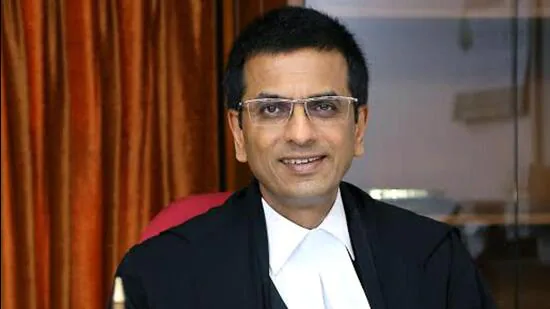CJI rejects plea seeking urgent listing of Hijab cases: On Friday, the Chief Justice of India (CJI) Dhananjaya Y Chandrachud denied a request for an immediate listing of petitions seeking a directive to government institutions in Karnataka to permit students to appear for exams donning the hijab.”I will list it promptly following the Holi holiday. “I will establish a bench,” the CJI told an attorney who brought up the issue.
The Supreme Court closes on March 6 for the Holi holiday and reopens on March 13.The attorney noted that the examinations will begin on March 9. The CJI asked the attorney, “What can I do if you show up on the last day?” The attorney replied that requests for a hearing had been made twice in the previous two months.
“I will establish a bench. I will detail the matter,” repeated the CJI. However, the attorney inquired, “What about the exams?” “I cannot respond to your queries,” replied the CJI.The CJI stated on February 22 that he would “take a decision” soon regarding the formation of a three-judge bench to hear the case in light of a split verdict by two judges of the previous bench in October 2022, after a group of Karnataka students made a similar appeal. On January 23, another request for listing the matter was made.
Due to the state government’s ban on hijabs in state-run institutions, those donning headscarves will not be permitted inside examination centres beginning March 9.In October, the court rendered a split decision on the prohibition, with one judge affirming the state’s authority to enforce school uniforms. The other argued that the hijab is a matter of free will that cannot be suppressed.
In his ruling, Justice Hemant Gupta dismissed all petitions against the March ruling by the Karnataka high court that the hijab is not obligatory in Islam and that the state government has the authority to enforce the uniform mandate.
Justice Sudhanshu Dhulia was of a different opinion and granted all appeals. Justice Dhulia stated in the operative portion of his ruling that the hijab is a matter of personal choice and that it cannot be prohibited.Justice Dhulia stated, as he nullified the state government’s prohibitive notification, that he was most concerned about the education of a girl child, and that the ban would undoubtedly prevent her life from improving.
In light of the dissenting opinions, the matter has been referred to the Chief Justice of India for the formation of an appropriate tribunal.
During the hearing for the case last year, nearly two dozen attorneys debated a variety of issues. The petitioners cited the right to practise religion, the freedom to dress as a matter of expression and identity, the right to access education, and the alleged unreasonableness of the state’s mandate in challenging the high court’s order upholding the prohibition.
Also Read | Conrad Sangma to take oath as Meghalaya CM on March 7
The Karnataka government countered the petitioners by maintaining throughout the proceedings that their circular to enforce the uniform was religion-neutral and solely intended to promote discipline and uniformity.




